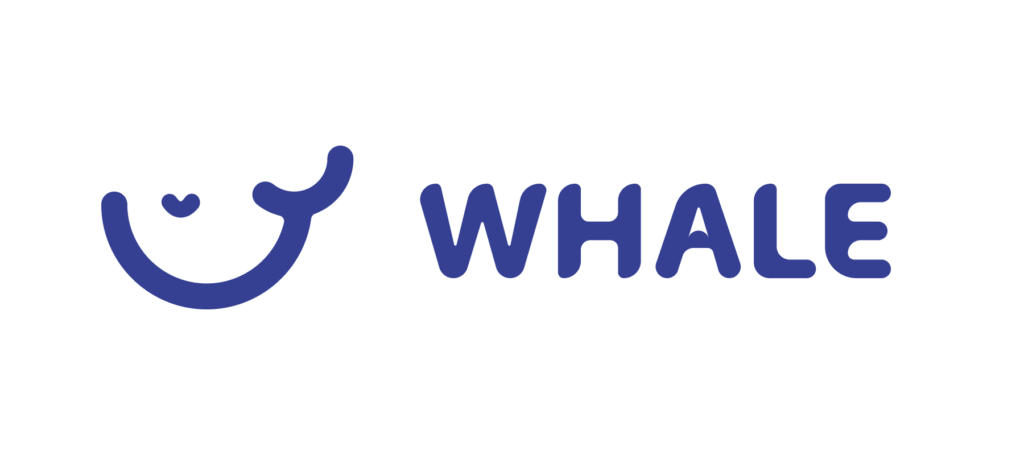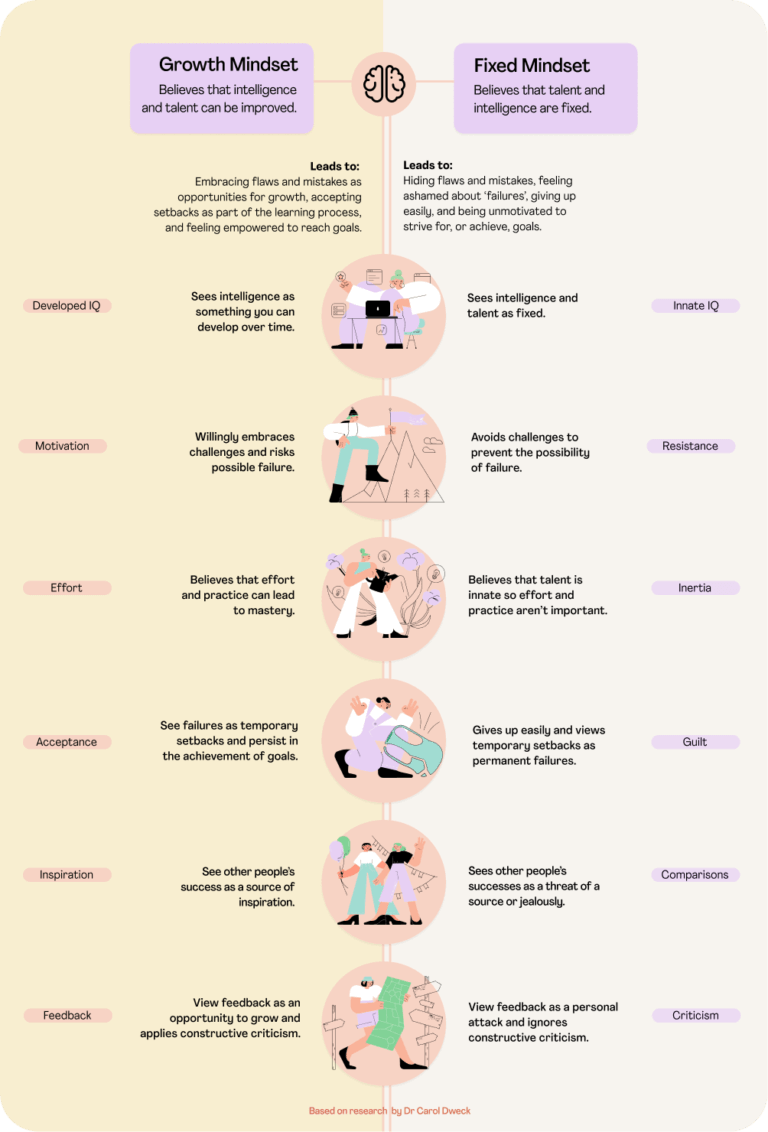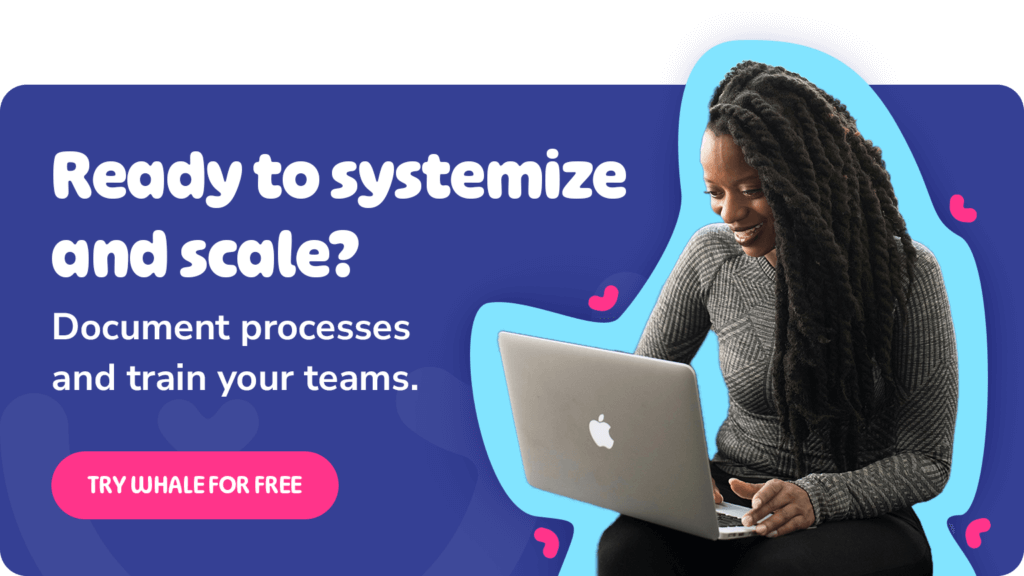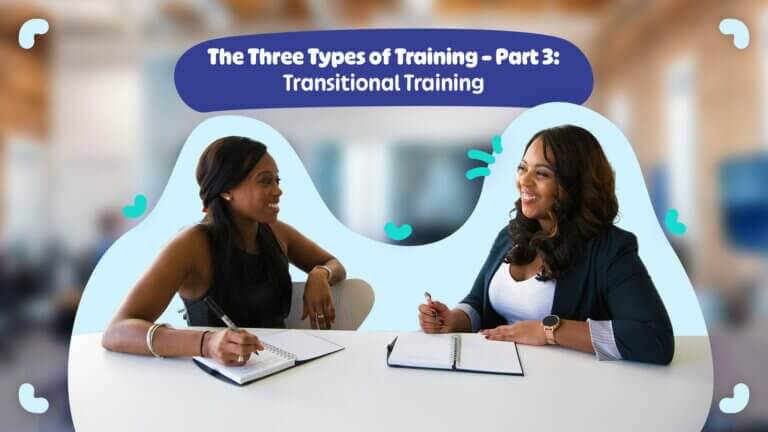How to create an in-quiz-ative learning culture?
Learning culture. It’s such a buzz word. 🙄
“The single biggest driver of business impact is the strength of an organisation’s learning culture”, Josh Bersin
But what exactly is a learning culture, and why is it important? Why should you pay attention to employee training? And how do you encourage team members to become more in-quiz-itive? (And yes, we’re spelling it that way for a reason and we’ll let you know why a bit later)
“A learning culture consists of a community of workers instilled with a “growth mindset.” People not only want to learn and apply what they’ve learned to help their organization, they also feel compelled to share their knowledge with others….” (SHRM)
According to Deloitte, a learning culture is
- 92% more likely to innovate
- 46% more likely to be first to market
- 17% more likely to be market share leaders
- 58% more prepared to meet future demand in terms of having skills for the future
- 34% better response to customer needs
- 26% greater ability to deliver quality products
- 37% greater employee productivity
What learning culture is not
Implementing tests that employees pass or fail with consequences for failing does not constitute a learning culture. Neither does an annual obligatory test or course constitute a culture of learning.
It’s about creating a mindset that sees failure as an opportunity for learning, that values continuous improvement and that views feedback as a step for progression.
How to create an in-quiz-ative learning culture?
1. Systemize & integrate learning into everyday work life
One significant aspect of a learning culture is the fact that learning is woven into everyday worklife through formal and informal learning. It’s all about learning to do things better for continuous improvement.
This doesn’t happen once a year. It’s an everyday thing. It’s all about systemization.
To make learning a habit for team members, it needs to be intertwined into everyday work life. This can be in the form of Google searches, continuous learning such as the example for marketers from Hubspot Academy or specific skill knowledge (yes such as this example from Whale).
2. Celebrate feedback
Feedback is how people improve. It’s not about getting things wrong or right and focusing on the results. (Remember that article our CEO Gary wrote on The Gap versus The Gain).
In motivating team members to learn, we wanted to ensure that feedback and results were immediately available for both learners and team leaders. So we’ve included immediate feedback and results upon completing an quiz.
Learners know what to remember for next time, and team leaders know where the knowledge gaps are (simply check the insights page).
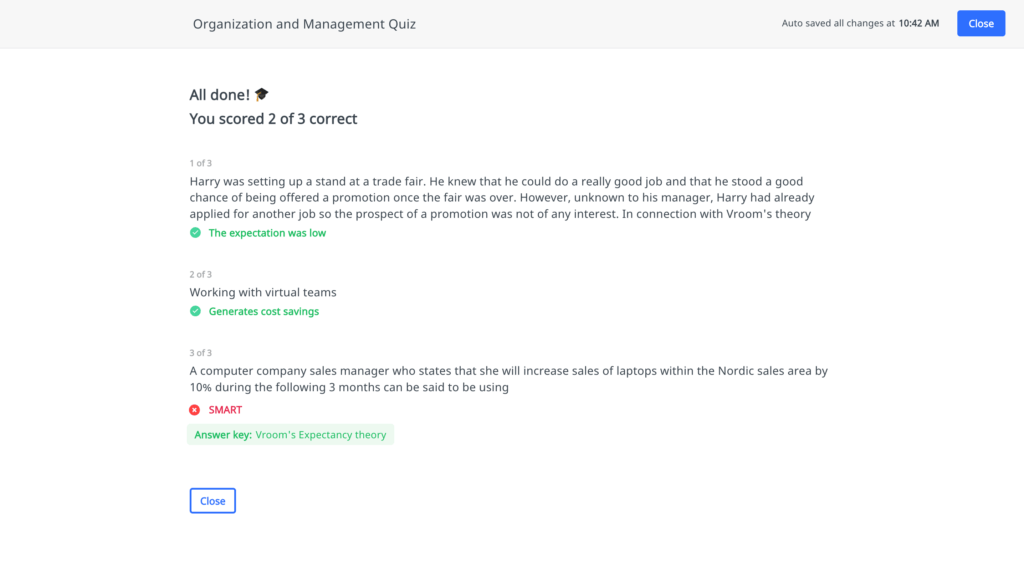
3. Reward in-quiz-ativeness
Whilst many organizations have recognized the importance of a learning culture, often reward systems are forgotten in rewarding learning.
We live in a capitalist society where all businesses are focused on results. That’s understandable as business is fundamentally about growth. So if compensation is a given, how else can you reward and incentivize employees to learn.
In his article, learning as an employee benefit, Michael Hargis, argues that learning should be seen as an employee benefit.
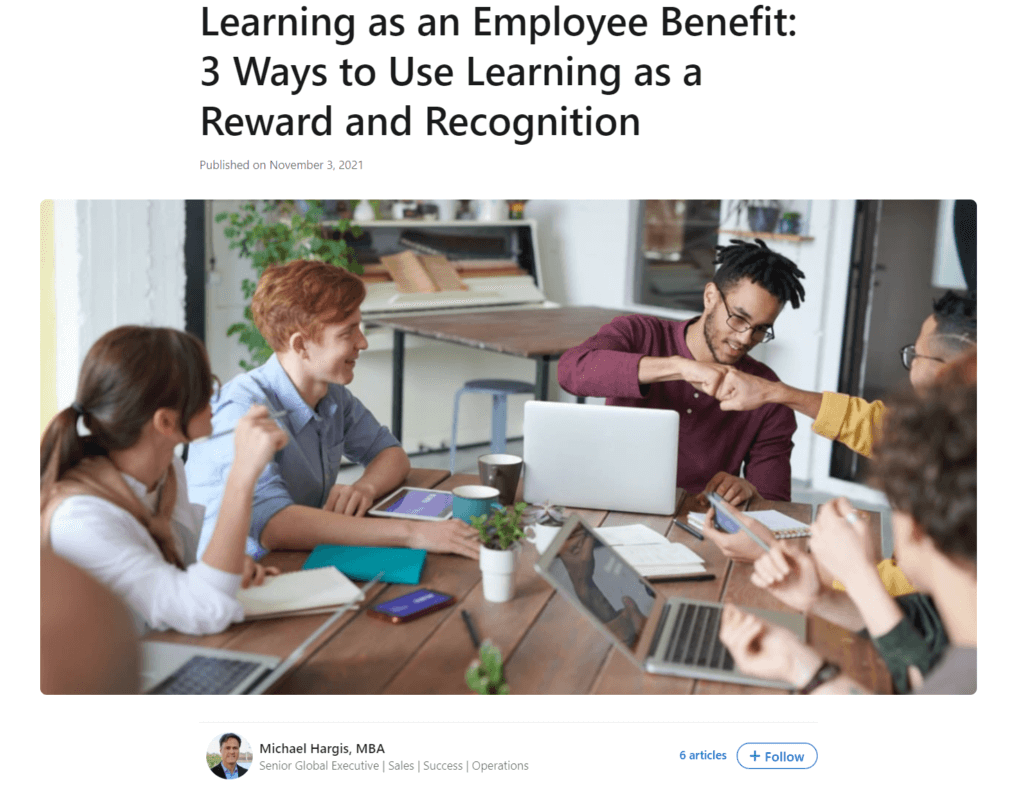
Rewarding good performers with training opportunities sends a more positive message to the rest of your team. The most adaptive organizations however give team members that opportunity to apply the knowledge given in the work and the organization as a whole so that learning becomes a benefit to the team member AND the organization.
Why we introduced quizzes on Whale?
As part of our mission to keep unlocking growth in teams and scaling businesses, we recently released our biggest product update ever! Quizzes!
And here’s why;
Did you know that research proves that quizzes help learning and knowledge retention? Here are 4 ways quizzes benefit companies AND team members;
- #1: Quizzes assess knowledge and focus on key areas of learning
- #2: Quizzes motivate learning
- #3: Quizzes trigger memory recall improving knowledge retention
- #4: Quizzes identify knowledge gaps
Quizzes are a great way to check how well your team members are retaining the information they’ve learned either in onboarding or when learning a new skill.
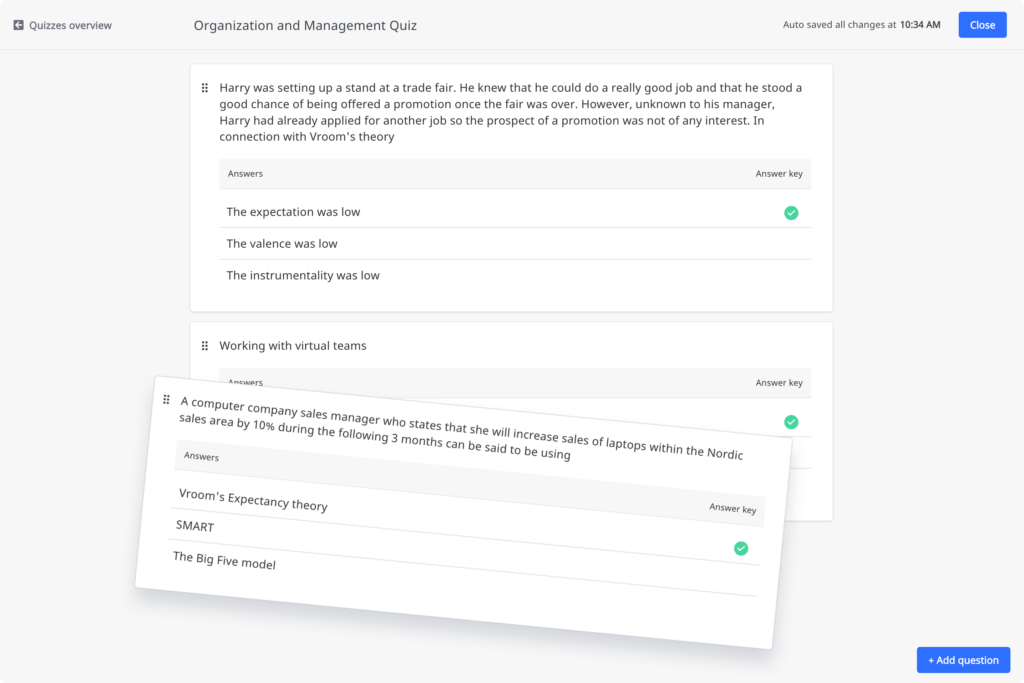
How to implement quizzes
Okay, so now you can test your team members every day? Um, no😎. People will quickly suffer from quiz fatigue if they’re assigned too many in a short time frame. But used strategically, they benefit everyone!
Here are a few ideas on how and when to best use quizzes;
Onboarding Quizzes
Onboarding can be intimidating for new team members. Use quizzes in a fun way to get new team members on board with the brand, culture, and aspects of their work that are important.
New skill Quizzes
Do you have team members who’ve been promoted or simply need to learn a new skill as part of their role? What are the top items they need to know to perform best? Create a new skill quiz to help them get up to rapid speed.
New policy and procedure Quizzes
Recently implemented any new workplace policies or procedures? Ensure consistency across the business by making sure key information is remembered.
Want to see how to implement quizzes into your learning culture? Connect with one of our experts on a demo.
Future-Ready HR:
A Guide to Using AI and Automation for Training
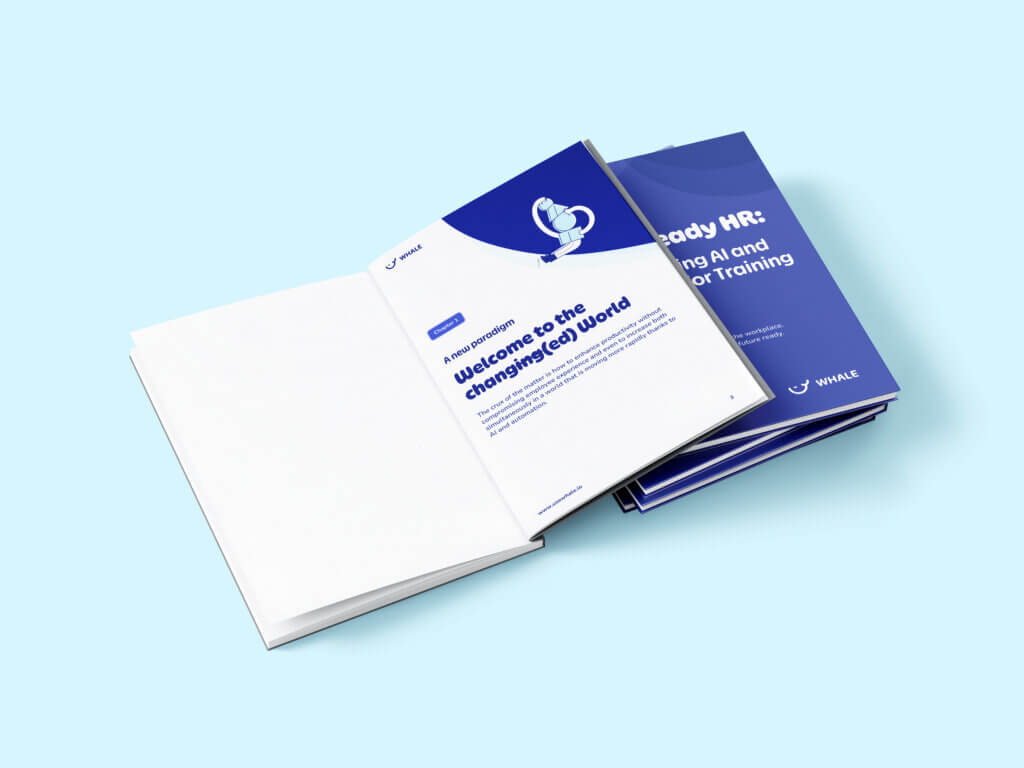
We interviewed the top human resource experts to discover AI and HR trends for the future.
Download the whitepaper to discover how AI and automation can revolutionize onboarding and training, empowering you to develop a future-ready workforce today!
